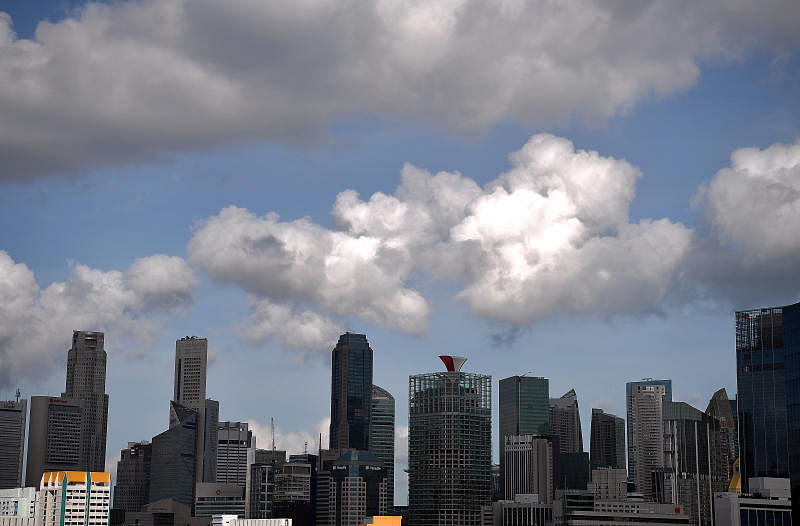Singapore retains top spot in Asia Pacific index for talent competitiveness
Sign up now: Get ST's newsletters delivered to your inbox

While the US and other large nations had traditionally benefited from global talent, the report cited Singapore's "clear focus on becoming a talent hub" as a reason for its competitiveness.
PHOTO: ST FILE
SINGAPORE-Singapore has topped the Global Talent Competitiveness Index in Asia-Pacific for the sixth straight year, coming second in the global rankings behind Switzerland and ahead of the United States, which was third.
Released on Monday (Jan 21) in Davos, ahead of the World Economic Forum, the yearly index measures how 125 countries are able to attract, nurture and retain talented people, and was compiled by French business school Insead in partnership with the Adecco Group and Tata Communications.
In the same index for cities, Singapore ranked 17th.
Singapore's stellar ranking comes despite "a progressive erosion of the talent base" of Asian countries, some of which edged downwards in the rankings, and at a time when talent-related issues are seen as a main concern for businesses and nations, said Insead.
In Asia, Japan fell to 22nd from 20th last year, while the United Arab Emirates, ranked 19th, is the only other Asian country in the top 20 this year. New Zealand and Australia, which were second and third in Asia-Pacific, came 11th and 12th in the world tables.
Referring to Singapore's and the US' presence at the top of the table, Mr Bruno Lanvin, co-editor of the Insead report, said countries with great universities and a strong education sector are the best at attracting talents, but there is no room for complacency.
"Because high-level talents are also more mobile internationally, no comparative advantage can be seen as irreversible, and these countries will need to remain open and innovative to keep their leadership," said Mr Lanvin, Insead's executive director for global indices.
The report also found that cities are better than countries at becoming talent hubs, being more flexible in adapting to new trends and patterns. Insead said it saw more efforts in developing entrepreneurial talent, especially in cities where 'smart cities' ecosystems are increasingly acting as talent magnets.
Among cities, Washington topped the list, and two Asian cities - Seoul (10) and Taipei (15) - came ahead of Singapore. Tokyo and Hong Kong was ranked 19th and 27th respectively.
While the US and other large nations had traditionally benefited from global talent, the report cited Singapore's "clear focus on becoming a talent hub" as a reason for its competitiveness.
The index showed it outdid all countries in its ability to enable and attract talent. Workers here also topped the global charts in global knowledge skills, for instance in professional, managerial, or leadership roles that require creativity and problem solving. But it did worse than other countries in talent retention, and has room to improve sustainability and lifestyle factors for talented workers.
Academic director of the index, L. Felipe Monteiro, said while Singapore continues to lead in talent competitiveness, its relative inability to keep talent - ranked 26th in the world - meant it came in below Switzerland, which excelled in all categories.
Job agency Randstad Singapore said firms here should start offering their staff exposure to global opportunities, and be more progressive in developing and improving workplace policies to accommodate and attract talent, such as flexible work arrangements.
"Singapore is definitely an attractive location in Asia Pacific for talent across key industries such as information communications, banking and financial services, life sciences as well as manufacturing," said its strategic account director for client solutions Clarence Quek, pointing to the fact that many global businesses and start-ups have picked Singapore for their global offices.
"Talent are drawn to Singapore as there are access to resources and opportunities for them to deepen their capabilities in such favourable conditions," said Mr Quek.
Hudson Singapore regional director Alena Salakhova said the Republic's attributes make it an easy choice for many foreign talents, many of whom pick Singapore as a place to work, despite better offers or relocation packages offered by employers in neighbouring countries.
However, tightening work visa regulations could stifle Singapore's potential growth as a technology and financial services hub, which depends on being able to quickly hire top talent with specific skill sets not easily found locally, she said.
The authorities tightened hiring rules for foreigners last year to give locals a fairer shot at more higher-paying jobs


